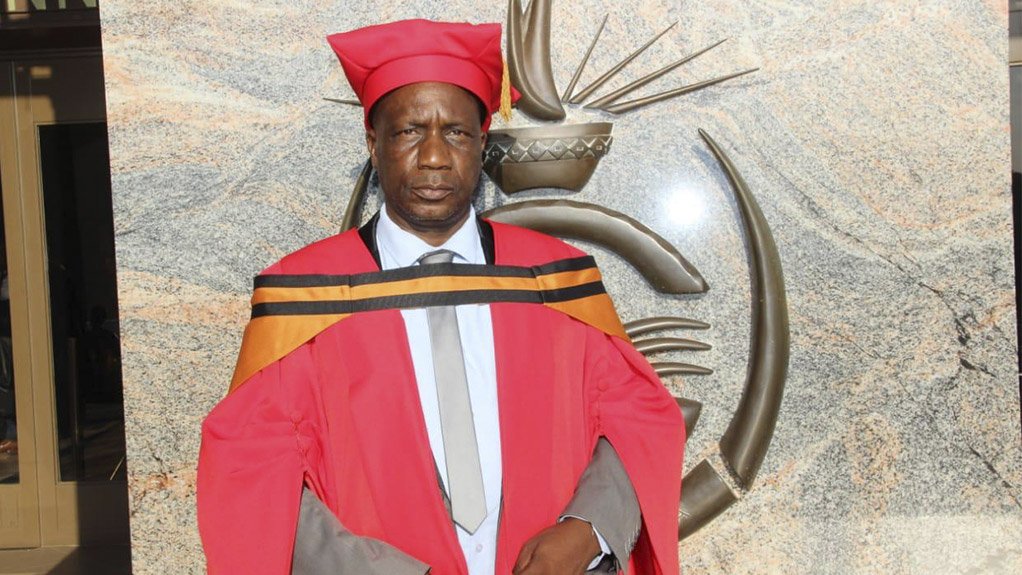/ MEDIA STATEMENT / The content on this page is not written by Polity.org.za, but is supplied by third parties. This content does not constitute news reporting by Polity.org.za.
Dr Justice Kobue Legodi is the first Unisa student to obtain a PhD in Setswana. His doctoral thesis applied Cultural Semiotics to analyse the process and significance of the cultural portioning of beasts of slaughter, drawing comparisons with similar practices elsewhere in the world.
His particular foci were indigenous knowledge and its significance and customs; how these are transferred to the next generation; and the scientific and psychological knowledge of the Batswana people. This approach reflects Legodi’s belief that students understand better when they are taught in their mother tongue or another indigenous language.
“When doing research in indigenous languages, the meanings and scientific concepts are not distorted, nor is the cultural aspect lost. If education is transmitted into indigenous languages, solutions are easily found and new concepts are revealed without delay. When I was doing research in Setswana, I noticed that the data remained original and that the scientific vocabulary in Setswana expanded. This made it all the more interesting and inviting to do further research,” explained Legodi.
One of the challenges confronting Legodi was the shortage of written sources, even at institutions such as the National House of Traditional Leaders and the Department of Arts and Culture. Unable to find publications or archival materials which aligned with his research topic, he had to resort to using old historical documents, in addition to visiting different villages, traditional leaders and elders, to collect data.
Legodi’s supervisor, Professor Daniel Matjila from African Languages at Unisa, describes him as a committed and cooperative student who always kept in touch with his supervisors, but mainly worked independently, which allowed him to complete his PhD in three years. Prior to that, Legodi obtained a master’s degree in Setswana, which focused on the semiotics of movement and the kinesthetics of Setswana traditional dances.
Matjila pointed out that, since 1974, Setswana has been at the forefront of introducing African languages as languages of teaching, learning and research at higher education institutions. Even though some other African languages still face notable obstacles, there are numerous external examiners and native Setswana scholars who are qualified and competent enough to ensure the quality of Unisa’s master’s and doctoral research output.
Legodi’s research contributes to new knowledge and expands the horizons of research in Setswana. It is pioneering in that it explores a long-neglected field of Setswana and African cultural practices that should be approached as forms of communication that articulate significant cultural messages,” said Matjila.
Legodi expressed his pride at being the first candidate to complete a PhD in Setswana at Unisa, and encouraged others to pursue research in their respective indigenous languages. He believes that such academic endeavours serve to enrich cultures and languages, and help to make the outside world more aware of the scientific knowledge and concepts which indigenous languages contribute to diverse fields of study.
Unisa, as a supportive teaching and learning institution, was prepared for this venture thanks to its forward-looking language policy. Language is, after all, one of the pillars of the university’s transformation agenda, which envisages “advancing indigenous knowledge systems that ground us on the African continent, without averting our gaze from the global horizon”.
Issued by Unisa
EMAIL THIS ARTICLE SAVE THIS ARTICLE ARTICLE ENQUIRY
To subscribe email subscriptions@creamermedia.co.za or click here
To advertise email advertising@creamermedia.co.za or click here











